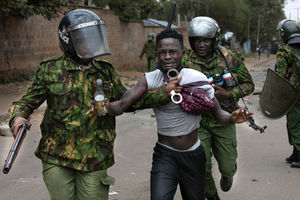The youth are our generations of today and future
Our young people and those who care about youth development should read the National Youth Development Policy of 2007, which I have come to learn is under review.
A twitter handle @SautiyaVijana belonging to Restless Development Tanzania, the other sought to ignite debate about the policy, and indicated that, the Government was in the process to reviewing the 2007 policy. The tweet sought to know what people would want to be “taken into consideration in the new Youth Development Policy”
According to the 2007 policy, over 35 per cent of our populace comprises youth (15-35 years old). The review, would be the third time, as the first such policy was developed in 1996. The figure over the years has risen up. Restless Development Tanzania in 2011 indicated that dear motherland had “the tenth largest youth population globally. With 66 per cent under the age of 25 already, and the figure set to rise significantly in a decade…” Such numbers go a long way to show how important development and implementation of youth policy is essential in dear motherland.
The 2007 policy dwells largely on youth development issues covering economic empowerment, environment, employment promotion, youth participation, HIV/Aids, gender, arts and culture, sports, adolescent reproductive health and family life issues.
While the issues are still relevant, maybe how to tackle those challenges, need to be addressed. Another question also needs to be answered, has the relevant authorities accessed the implementation of the 1996 and 2007 documents, so that we can know its successes and failures, and use the same to ensure we carry on the successes and prevent past failures from recurring?
It remains to be seen if the new policy will review the age of youth. In the past, some important document have defined the age of youth to be 15 to 28, hopefully, the new policy will shed more light on this. The United Nations age for youth is 15 to 24, while the AU, African youth Charter is 15 to 35.
One of the biggest challenges we face today is youth unemployment. The policy must address employment creation in big numbers. Practical education, vocational training combined with entrepreneurial skills development can go a long way in enabling more youths to become job creators, rather than job seekers, which is not capable of accommodation the vast majority at the moment.
When the youth gain entrepreneurial skills, it would be great if the government and private sector can offer them grants and loans. Of course the government has been shown goodwill in youth development over the years, and even the gesture to review the old policy is a very positive venture. There have been gaps in implementation of many policies, which need to be addressed.
Last Tuesday, our sister paper, The Citizen called a programme on youth development “timely” where the government has borrowed about 270 billion to spend on youth development. The funds will be used to develop vocational skills for our young people. I can confidently say that development of skills will give the young people confidence in job market or for self employment. When after school or college one knows, s/he is competent in a certain field, it means a lot to personal development.
There is a joke that goes around of an electrical engineer who doesn’t know how to change a simple bulb at the sitting room, but knows every single component that makes it. Theoretical knowledge is very important, but practical knowledge is all important in the real world, where the society needs solutions to problems and not theories. Let us create employment opportunities, reform education system to enable the youth gain skills and allow them to participate in decision making.



